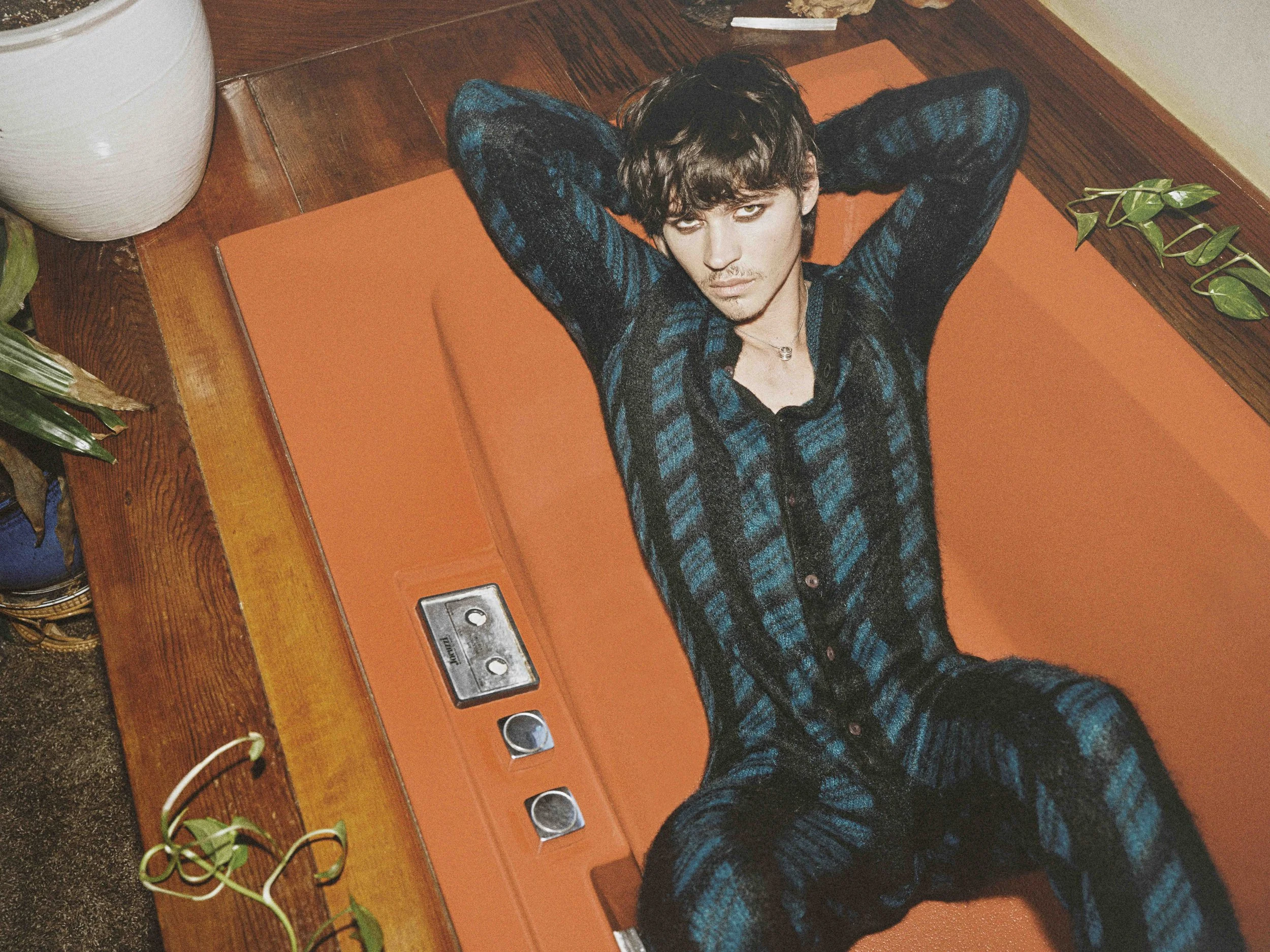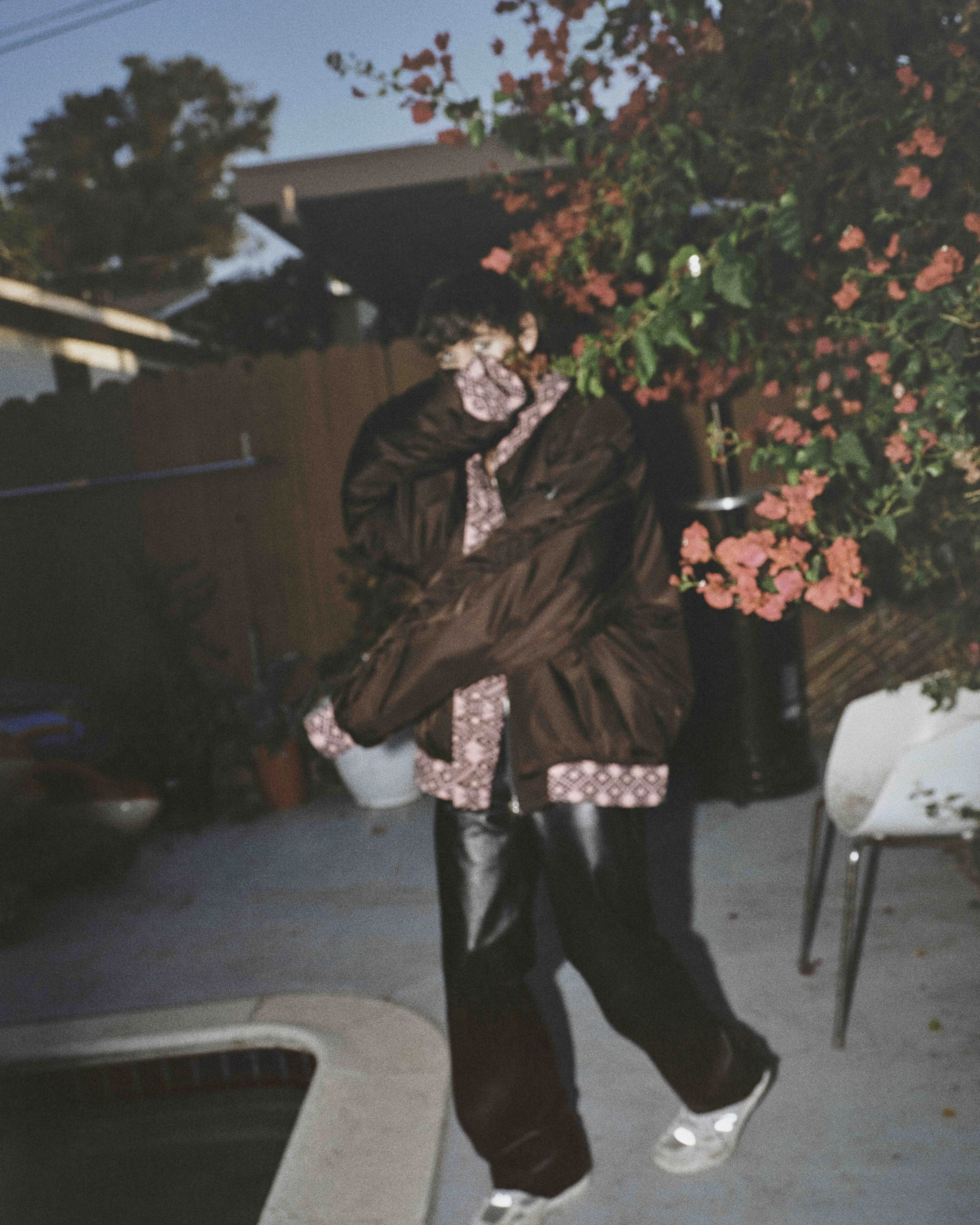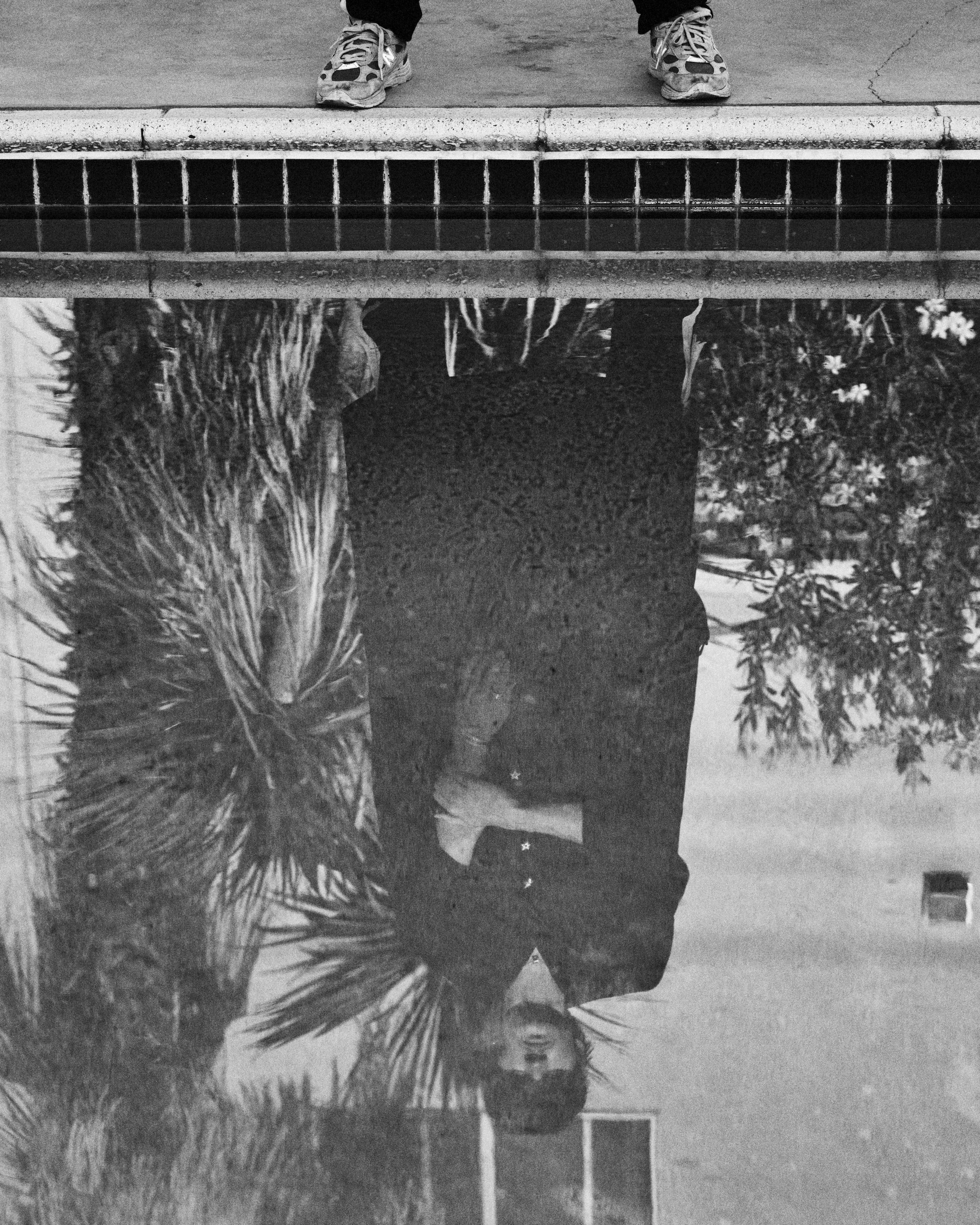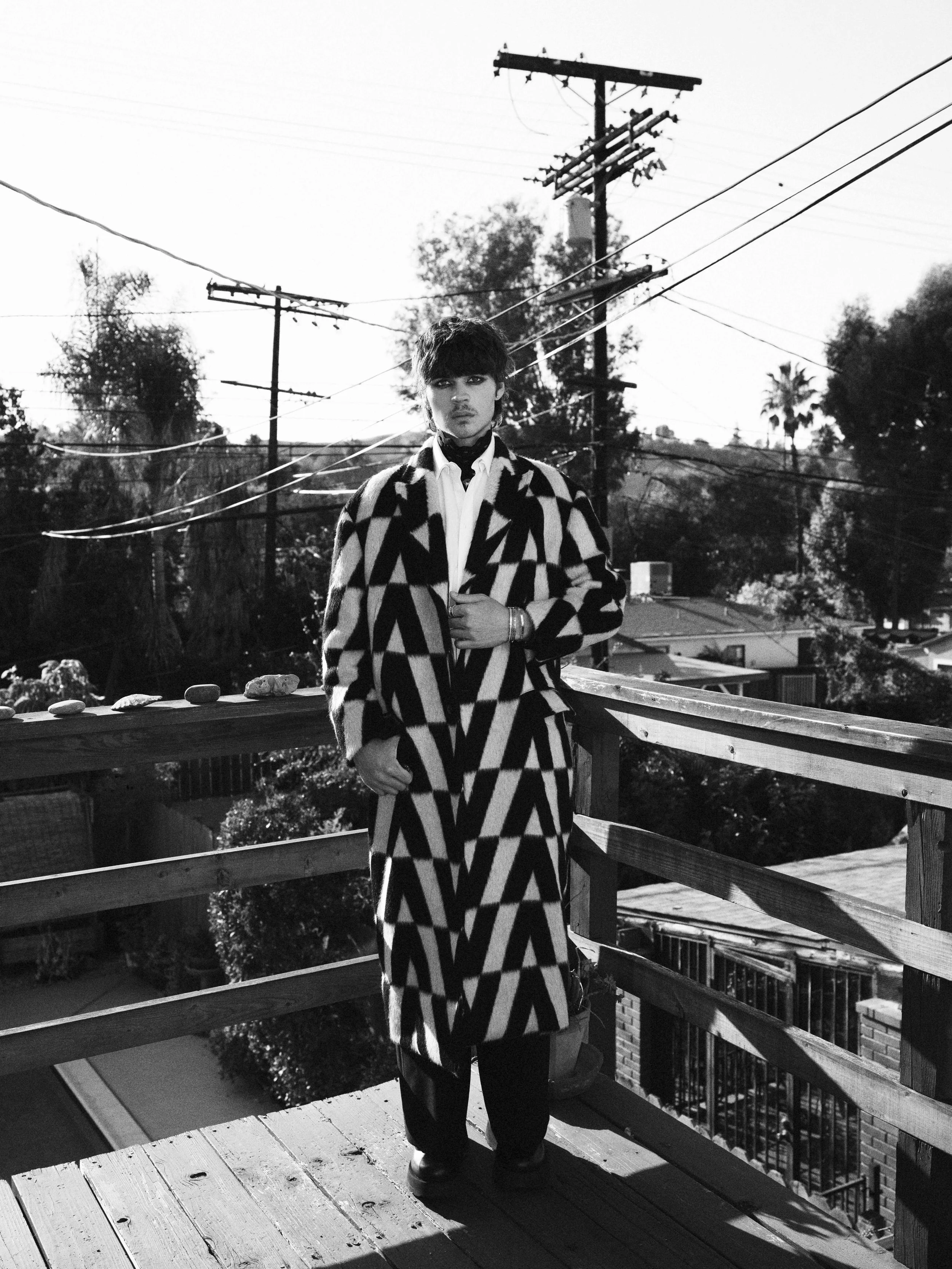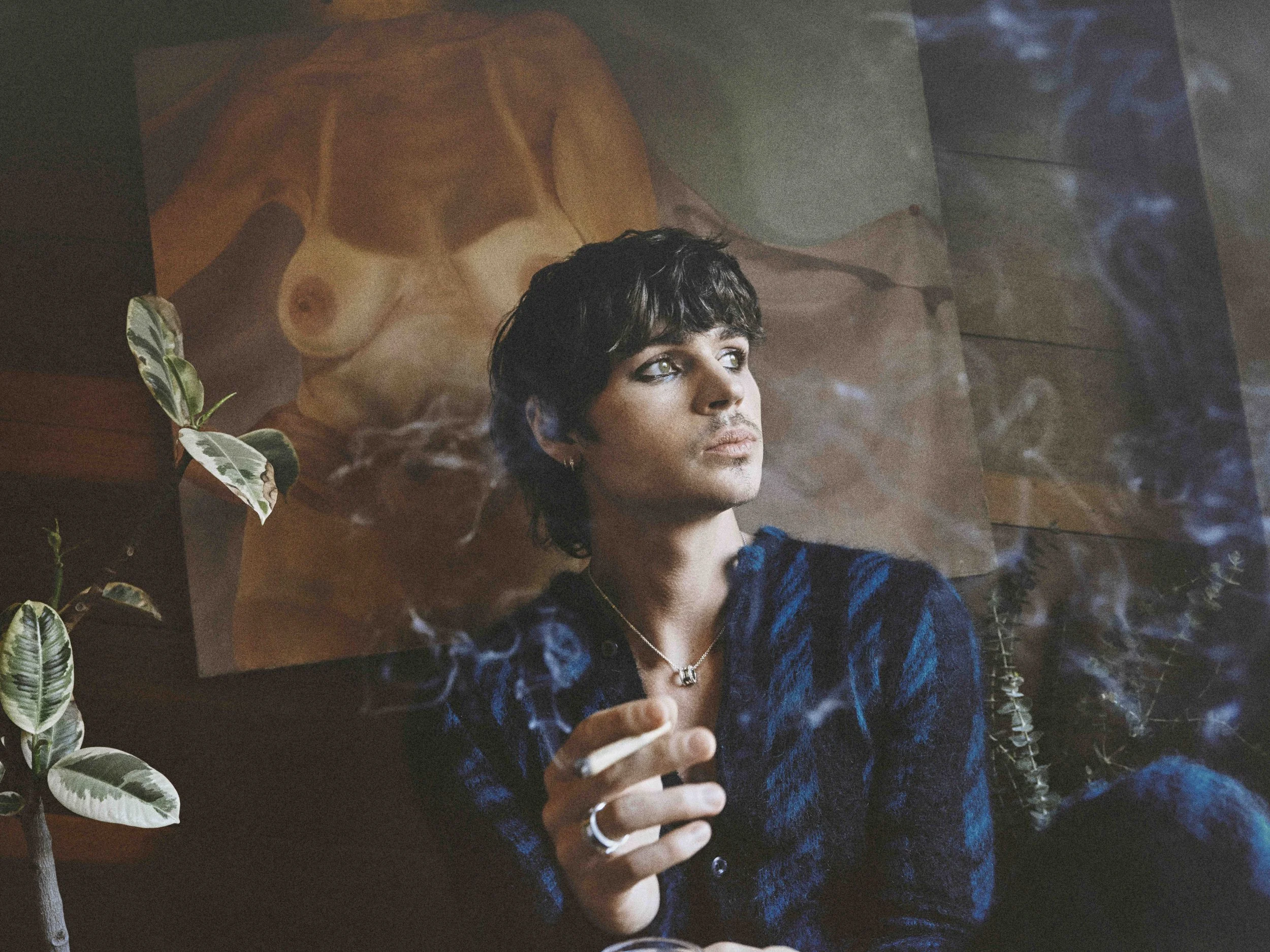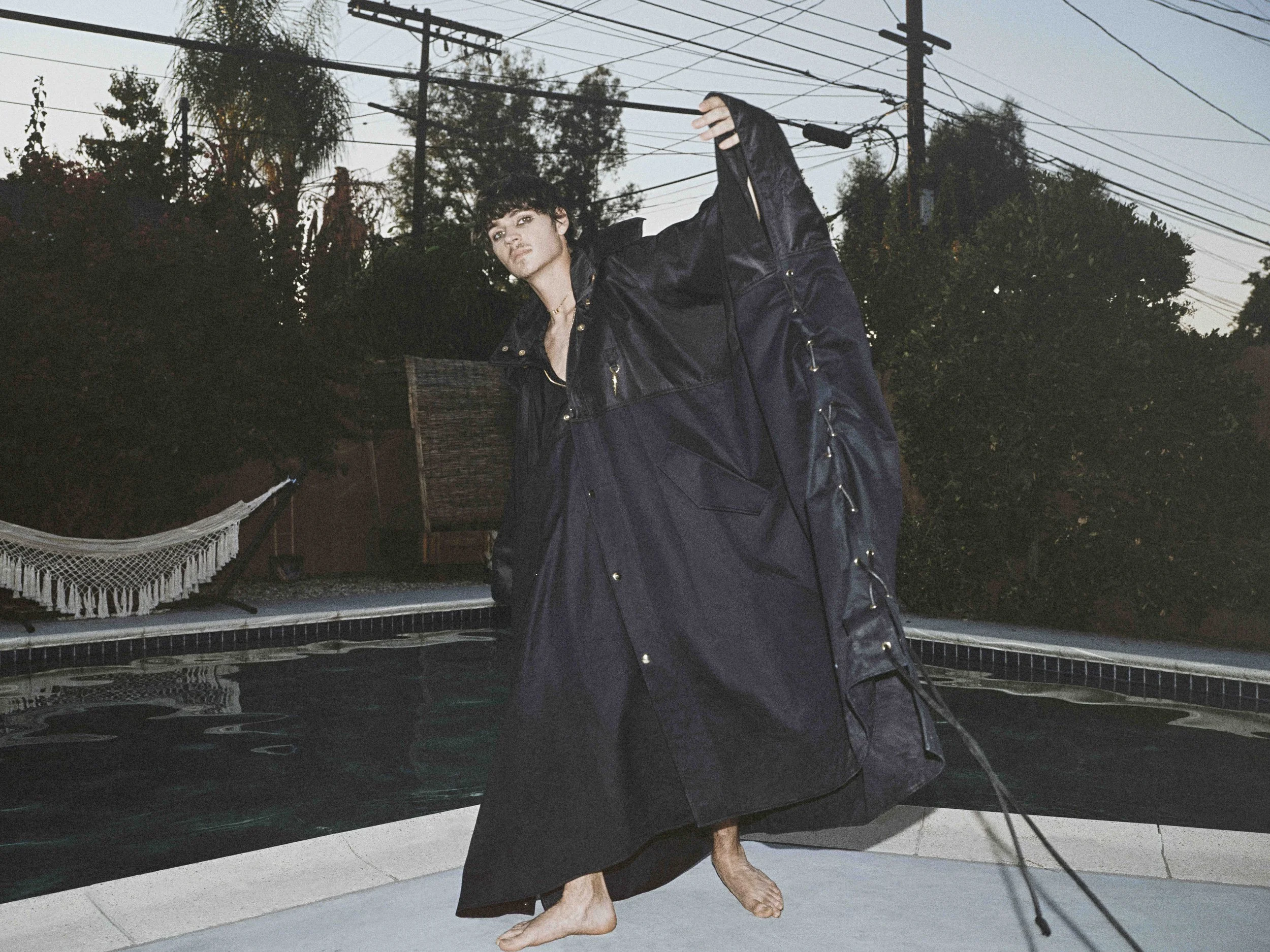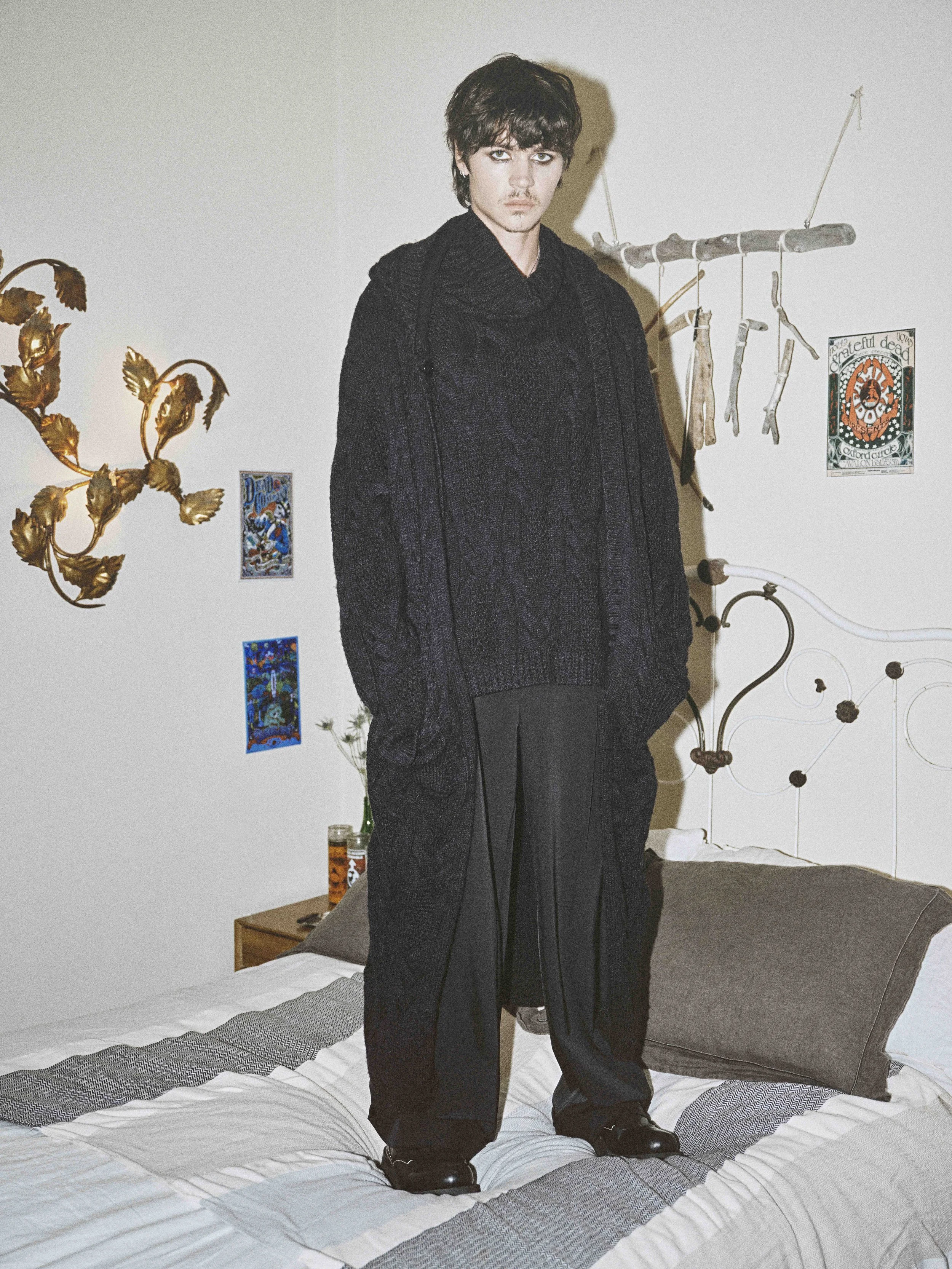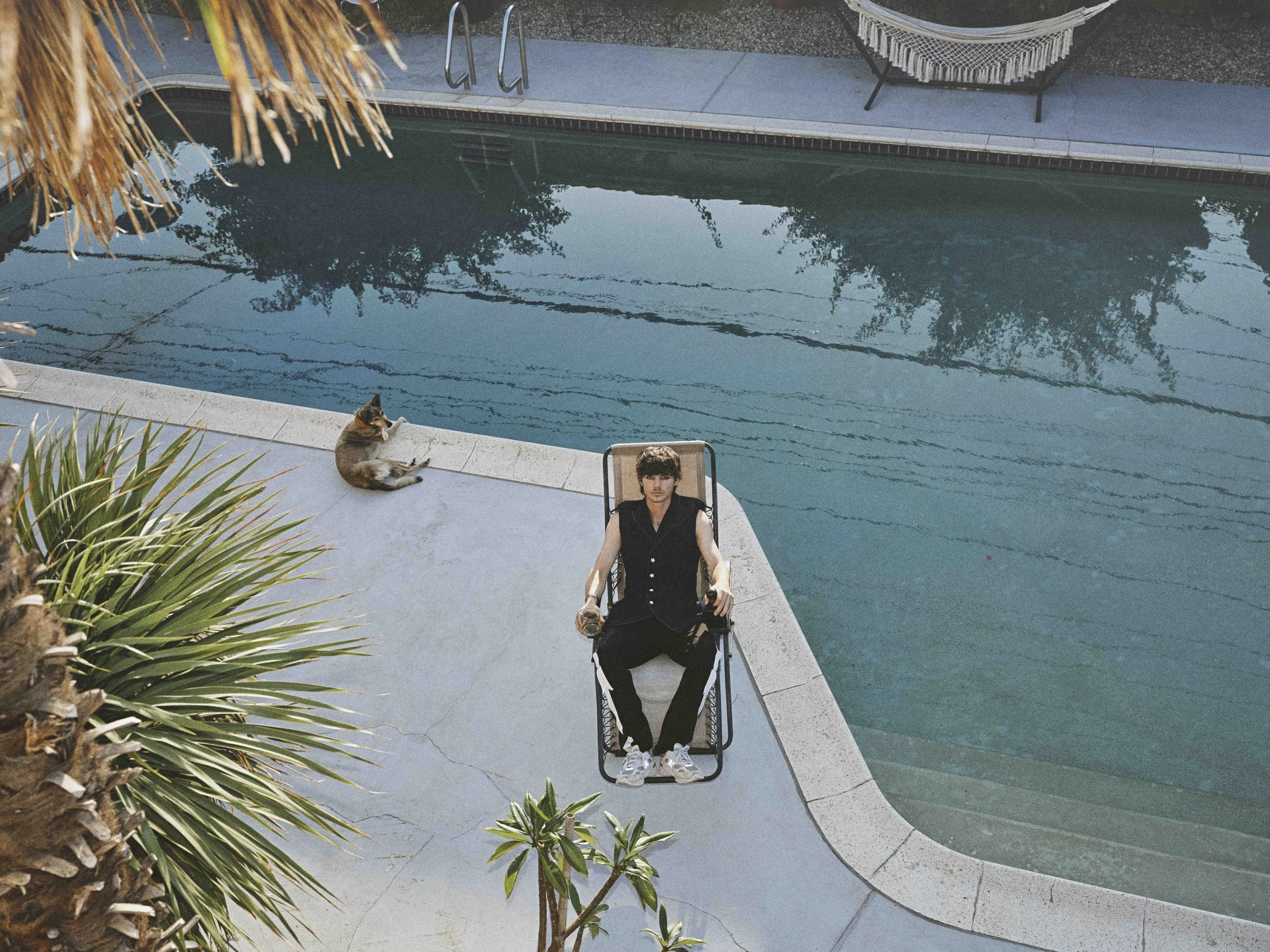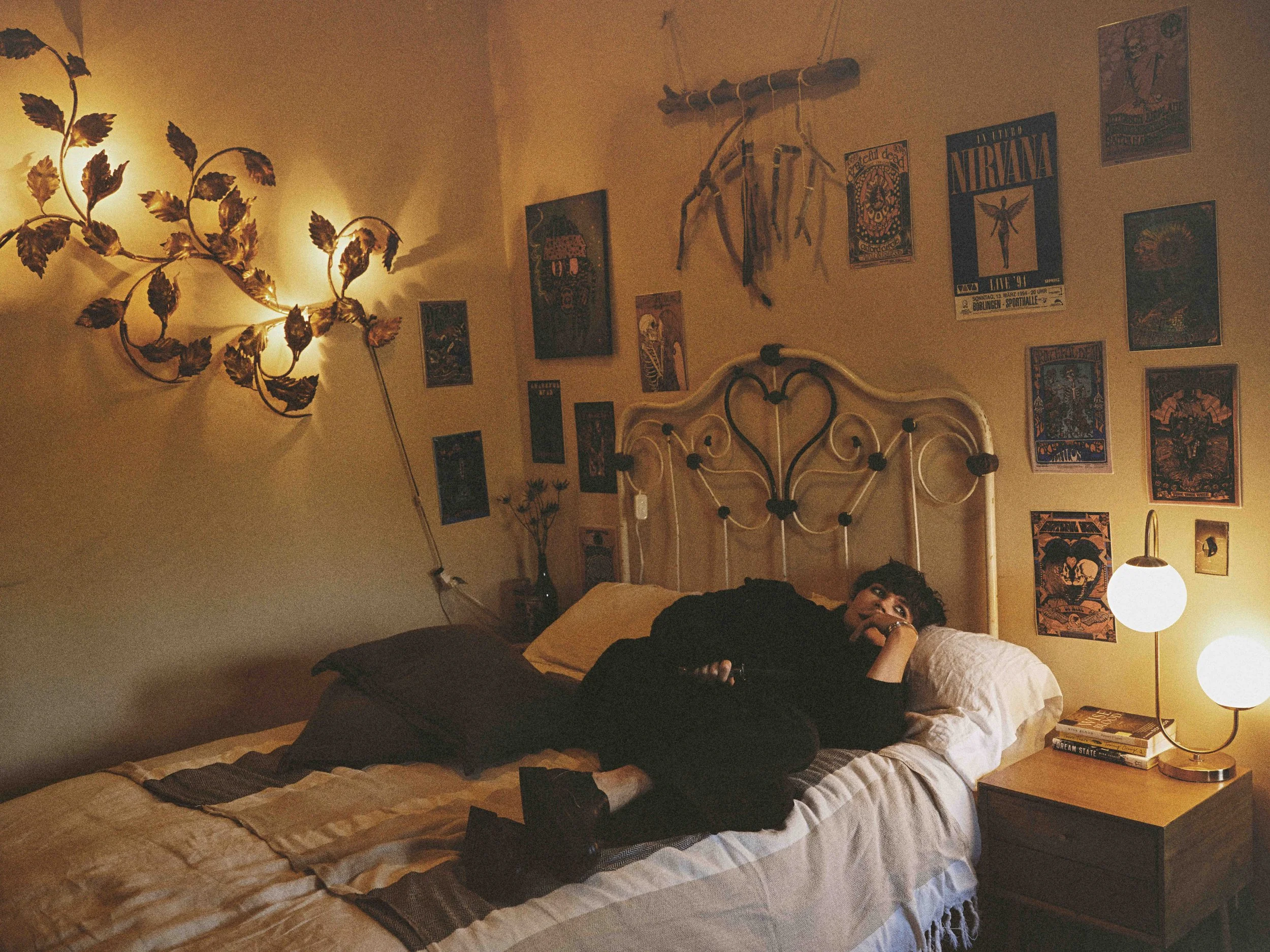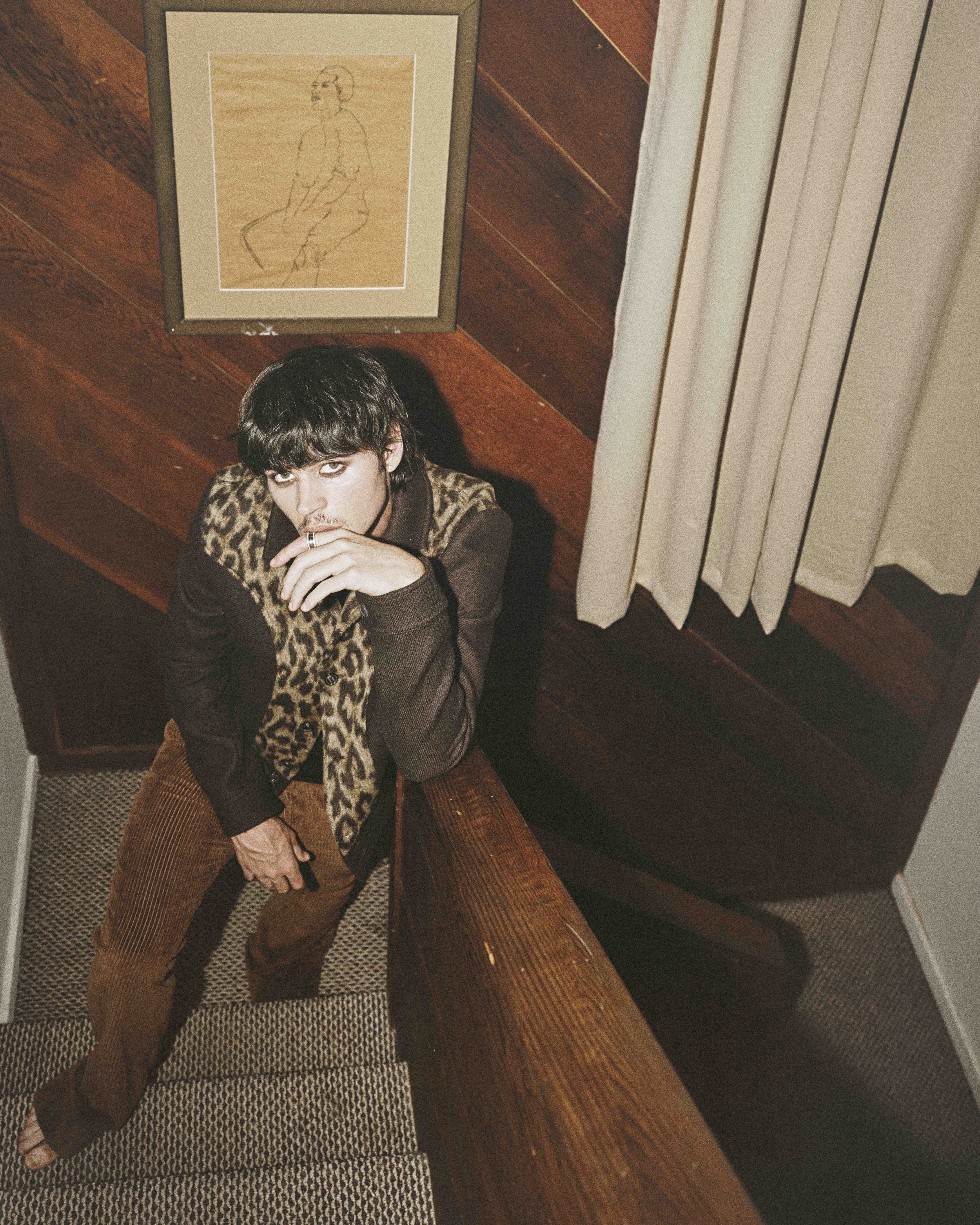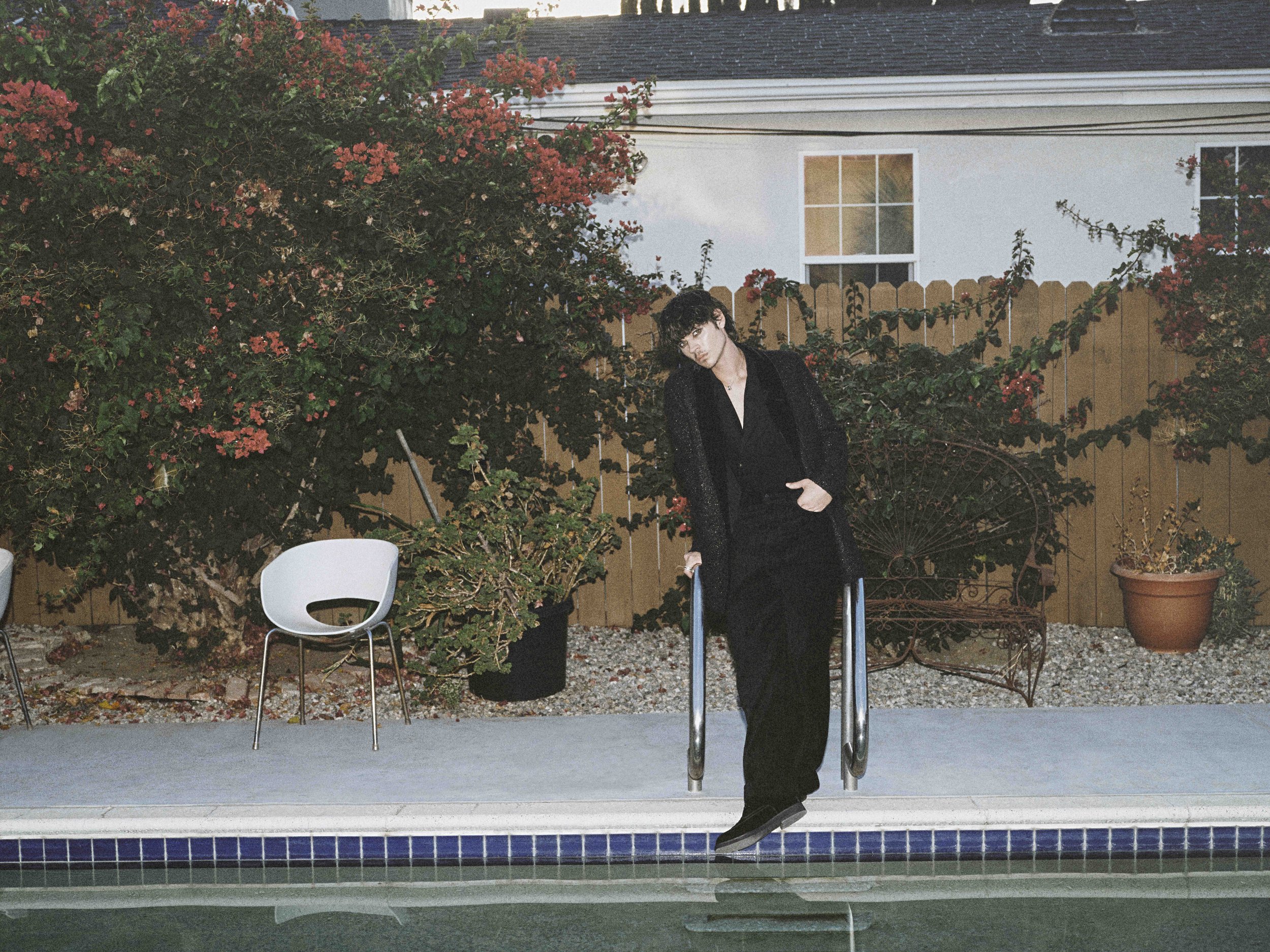Will Peltz for French Fries F/W 2021/22 issue #4
Interview: Federica Furino / chiccuzza75
Photography: Dennis Leupold / dennisleupold
Styling: Oretta Corbelli / orettac
Hair: Scott King / scottkinghair
Makeup: Dillon Pena / dillonpena
Design & Art Direction: Courtney Walter / thecourts
Digital Tech: Kevin Leupold / kevinleupold
Styling assistance: Camille Bersier / camillebersier
Assistance: Winston Kingstor
Production: Kate Buckwald / katebuckwald
Press office: M Punto Comunicazione / mpunto_comunicazione
Total look Prada
Jewellery Bulgari
"I like to look at life through the eyes of another person and from different perspectives. To transform myself, to become another, someone I would never be in life.” When I ask him what he loves most about being an actor, Will Peltz tells me about Luke, the character he plays in his latest movie "13 minutes”, a gay boy son of a farmer. "Two weeks earlier I was in Los Angeles and two weeks later in Oklahoma, inside a farm. It was the first time I entered a place so far away and so different from the life I've led. It was very very interesting.” I listen to it and think that it would be the perfect storyline for a movie or a social experiment: the son of a billionaire tycoon trying to be a farmer. “Interesting", he repeats and of course that he is sincere. In fact, his life, as the American newspapers tells it, seems to be out of Succession (award-winning HBO TV series with Brian Cox): private jets, villas, penthouses in New York, parties, family reunions. To that narrative, he doesn't add details, and therefore it is from there that we have to start: from the family. From his father, Nelson Peltz, 78-year-old New Yorker, one of the richest men in the United States - his mother, the model Claudia Heffner, and Nicola, his younger sister - the best known of Will's nine siblings and that to whom he is most attached - actress and future wife of Brooklyn Beckham, up to his historian girlfriend, model Kenya Kinsky-Jones (daughter of Quincy Jones and Nastassja Kinski). Tree genealogy and relationships, of course, do not exhaust the story of the boy who speaks with me in a live Zoom interview from Los Angeles, but it helps to track the range of action and the perimeter of movements.
Jacket Prada
Trousers Roberto Cavalli
Jewellery Bulgari
For example, those in New York, where he was born and where his family is based, and Los Angeles, where he lives (“I'm lucky enough to be able to go back and forth, enjoy the best without having to choose "); or those between the cinema and fashion ("I love both, they are professions that are very similar”). Thirty-five years, a background in family sport, hockey, and an acting career waiting to take off with a starring role, keeps the conversation going with uncommon grace and lightness. I listen to it, but I don't see it: we are on Zoom, but he keeps the camera off and when I ask him why, he changes the subject. He starts talking about his recently released films, 13 minutes, by Lindsay Gossling, in which he plays precisely the son of the farmer, and of Deltopia, by Michael Easterling and Jaala Ruffman, in which he plays a crazy drug dealer.
How did you end up acting?
By chance, after finishing high school. I was looking to get on the college hockey team and I took a sabbatical year to train. At that time I was living at home with my family and spent a lot of time with my sister. Nicola was small, she must have been eight or nine years old, and she had started acting. And since she had to learn and practice, I helped her memorize the lines and rehearse her part. And, after a while, I started to like it. I came to Los Angeles, met her agent and he said: why don't you try? I followed his advice and here I am.
A nice change from hockey to acting. What attracted you most of this experience?
Entering the lives of others, as different as possible from mine.
An example?
I'd love to play a dark role, like a serial killer. A super bad one.
Total look Valentino
Jewellery Bulgari
Spence, your character in Sierra Burgess is a loser, not a serial killer, but he's not even a model. And so was the drug dealer from Deltopia. A nice love movie, right?
I tend to prefer the role of the villain. It is more stimulating, it requires more effort, it’s less obvious. You have to ask yourself some questions and try to understand where the evil inside comes from. Get Joker, for example: there is a world behind his wickedness.
Is this the role you would like?
I've always dreamed of it.
Did acting also help you understand yourself better?
Absolutely. By being an actor you are always in touch with your emotions and this is what you are, it helps to understand who you really are, to know many things about yourself that you would otherwise leave behind locked in a drawer. It is a very effective way to train emotional intelligence.
Total look Prada Jewellery Bulgari
Besides being an actor you are also a model, like your mother. Is it easy to switch from set to catwalk?
For me, yes, and it's beautiful. In fact, I started doing catwalks when I was already an actor. The part in "Men women and children" had given me a certain notoriety and I happened to take some jobs. I started like that and I haven't stopped since. Also because I always loved fashion. I have a natural propensity to take care of my style and I understand what to do, modelling is a job that I adore.
Does it have something in common with being an actor?
When I am an actor I like to get away from myself hiding behind the makeup and behind the costumes, while when I do fashion shoots it's me: I wear my face and my identity. But also a fashion shoot must be interpreted, it has a theme and a setting and plays a part. In this, the two professions are very similar.
Off the set, how do you like to dress up?
Of course, it depends on the moments. But if I can, I always choose something comfortable, casual.
Total look Roberto Cavalli
Jewellery Bulgari
The criteria of masculinity have changed and fashion has also become genderless. How do you move in this fluid world?
Very comfortable. In past generations, gender stereotypes were very strong: if you were a man, you had to choose certain jobs, certain clothes, certain sports. There were contexts and styles, alone male or female only and things that were not "appropriate" to do. Fortunately today it is not like that anymore, the world is more open to differences. There are no more gender roles: you are the one who you choose to be. For a guy, for example, it's no longer "weird" to do things that were considered to be for females, like putting nail polish on. Or collect plants, as I do.
A change of course that has helped many young people to get rid of the stereotypes of toxic masculinity
One of the best things about this generation is that there is more attention to sensitivity. We live in a world where, finally, boys can share their emotions. And it wasn't always like that. When I was playing hockey, for example, I never talked about my feelings. Sitting with your friends and crying or showing yourself fragile was not considered "male". Society requires you to be tough. Today instead you can show your humane side, talk about feelings and show that you are fragile or sensitive despite being a man. It is cool.
Total look Emporio Armani
Jewellery Bulgari
Have you learned to open up?
Now that I'm older, yes, with my closest friends, I share fears and frailties and we talk about life on a deeper level.
Is your ecological commitment limited to the plants you collect or does it go further?
I would like to do more. We should all do more to help reduce our impact on the environment. After all, we don't have another planet, we have to save ours in every way possible. Even the trivial ones, within everyone's reach, such as getting around by bicycle or using one water bottle instead of a plastic one.
Many of your colleagues refuse to wear clothes with animal fabrics
I don't go that far, but I respect animals and their rights. And I find it fantastic that people today worry about these things. It's a big change, especially if we think that until a few years ago there were very few to talk about environmental impact either wondering where the clothes they were wearing came from. The only criteria was: I look good or not, like it or not. Today, on the other hand, the story of a dress does matter, and people have stopped buying furs. We have a conscience, we ask ourselves new questions on what is right to buy, what we need and what not, and this is beautiful.
Total look Dior
Jewellery Bulgari
Tell me about your plants
I'm obsessed with them. I collect yucca, aloe, and tropical plants. They make me happy. Whenever I can, I sit there in the middle to meditate. Green makes me happy and relaxes me.
The last frontier of green obsessions is collecting mushrooms
I know a lot of people who smoke them and I don't know if it's an obsession. I prefer to eat them. Especially the truffle: it makes everything look good.
How did you go through the lockdown?
I've had ups and downs. Some days were very creative and I produced a lot, I felt I could manage everything, I meditated and I was concentrated. Other days it seemed I wasn't able to do anything.
Total look Emporio Armani
Jewellery Bulgari
How did you adjust to social distances and the lack of hugs?
I was very lucky because I was with my parents when the pandemic started, I was with them for two months. We played chess, watched old movies and cooking together. But living an experience like this has forever changed my way of seeing life: the world has become another place. And it doesn't just apply to me: we have all changed our priorities and our habits. The pandemic has forced us to face our demons, to take note of all that made no sense in the routine of our days. We started, forced by circumstances, to do things in a different way.
Did you miss the world before?
Very. But now, finally, we are starting to have some social life again and this sense of normality is almost an achievement. Many things can be done well too via Zoom, and that not having to go to work every day was a liberation. But in the end, people need to be together and close, a phone or a computer are not enough. We need human connection.
Total look Valentino
Jewellery Bulgari
Jacket AMIRI
Jewellery Bulgari
Have you found that connection again?
Fortunately, on some level, yes. It's nice to be able to organize small parties again and see friends for real, not just on a screen.
What matters most in life to you?
Love. I could not live without it.
Total look Emporio Armani
Jewellery Bulgari

